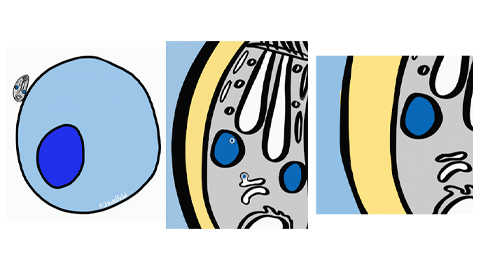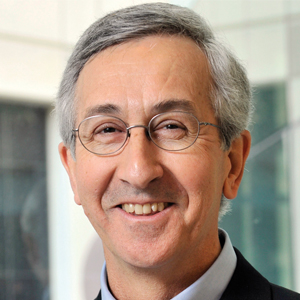2022 JBC/Tabor award winners announced
The American Society for Biochemistry and Molecular Biology annual meeting in Philadelphia in April will feature four special spotlight talks by winners of the Journal of Biological Chemistry/Herbert Tabor Early Career Investigator Awards. All are first authors of standout JBC papers published in the previous year.
The awards are named for the late Herb Tabor, who served as JBC’s editor-in-chief from 1971 to 2012 and upheld the journal’s mission to support the dissemination of science, enhance research visibility and promote scientific equity.
A committee of JBC associate editors selected six award-winning first authors after carefully reviewing nominations from JBC readership, consulting experts in the field, and evaluating the scientific quality and impact of nominated papers.
Alex Toker, editor-in-chief of JBC, said, “We are happy to recognize these early-career investigators who have contributed significant research to the journal. They represent the next generation of innovators and researchers in biological chemistry.”
The winners of the 2022 Tabor awards, listed here, will give talks on their award-winning papers at 3:30 p.m. Tuesday, April 3, in room 126A of the Philadelphia Convention Center at the ASBMB annual meeting.
Jacob B. Rowe is a doctoral student at the University of Miami Miller School of Medicine. His paper is titled “The evolution and mechanism of GPCR proton sensing.”
Jodi Brewster is an associate research fellow at the University of Wollongong. Her paper is titled “Structures and kinetics of Thermotoga maritima MetY reveal new insights into the predominant sulfurylation enzyme of bacterial methionine biosynthesis.”
Armin Bayati and Rahul Kumar are graduate students at McGill University and are joint first authors. Bayati will give a talk on their paper titled “SARS-CoV-2 infects cells after viral entry via clathrin-mediated endocytosis.”
Calvin J. Gordon is a graduate student at the University of Alberta. His paper is titled “Molnupiravir promotes SARS-CoV-2 mutagenesis via the RNA template.”
The sixth winner, Julianty Frost, a research associate at the University of Liverpool, is on maternity leave and will present her work at the 2023 ASBMB annual meeting.. Her paper is titled “Von Hippel–Lindau small-molecule inhibitor binding increases stability and intracellular levels of VHL protein.”
Enjoy reading ASBMB Today?
Become a member to receive the print edition four times a year and the digital edition monthly.
Learn moreGet the latest from ASBMB Today
Enter your email address, and we’ll send you a weekly email with recent articles, interviews and more.
Latest in People
People highlights or most popular articles

Sketching, scribbling and scicomm
Graduate student Ari Paiz describes how her love of science and art blend to make her an effective science communicator.

Embrace your neurodivergence and flourish in college
This guide offers practical advice on setting yourself up for success — learn how to leverage campus resources, work with professors and embrace your strengths.

Survival tools for a neurodivergent brain in academia
Working in academia is hard, and being neurodivergent makes it harder. Here are a few tools that may help, from a Ph.D. student with ADHD.

Quieting the static: Building inclusive STEM classrooms
Christin Monroe, an assistant professor of chemistry at Landmark College, offers practical tips to help educators make their classrooms more accessible to neurodivergent scientists.

Hidden strengths of an autistic scientist
Navigating the world of scientific research as an autistic scientist comes with unique challenges —microaggressions, communication hurdles and the constant pressure to conform to social norms, postbaccalaureate student Taylor Stolberg writes.

Richard Silverman to speak at ASBMB 2025
Richard Silverman and Melissa Moore are the featured speakers at the ASBMB annual meeting to be held April 12-15 in Chicago.

